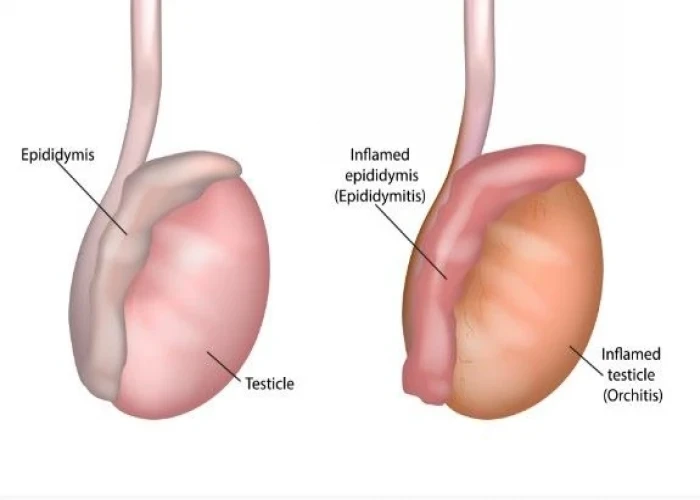 Welcome
Welcome
“May all be happy, may all be healed, may all be at peace and may no one ever suffer."
Dysentery

Dysentery is a common medical condition that affects millions of people worldwide. It is a type of gastrointestinal infection that causes inflammation and irritation of the colon, leading to severe diarrhea with blood and mucus in the stool. Dysentery can be caused by a variety of bacteria, viruses, and parasites, and is typically spread through contaminated food or water.
In this article, we will explore the causes, symptoms, treatment, and prevention of dysentery.
Causes of Dysentery
Dysentery is caused by a variety of pathogens that can infect the gastrointestinal system. The most common causes of dysentery include:
Bacterial Infections: Bacterial infections are a common cause of dysentery, particularly in developing countries where sanitation and hygiene may be poor. Some of the most common bacteria that cause dysentery include Shigella, Salmonella, and Escherichia coli (E. coli).
Viral Infections: Viral infections can also cause dysentery, particularly in children. Rotavirus is a common viral cause of dysentery in young children.
Parasitic Infections: Parasitic infections, such as amoebiasis, can also cause dysentery. These infections are often spread through contaminated water or food, particularly in areas with poor sanitation.
Symptoms of Dysentery
The symptoms of dysentery can vary depending on the underlying cause and the severity of the infection. Some of the most common symptoms of dysentery include:
Abdominal pain and cramping
Nausea and vomiting
Fever and chills
Diarrhea with blood and mucus in the stool
Dehydration and electrolyte imbalances
In severe cases, dysentery can lead to complications such as kidney failure, sepsis, and even death.
Treatment of Dysentery
The treatment of dysentery depends on the underlying cause and the severity of the infection. In many cases, dysentery can be treated with antibiotics, which can help to eliminate the bacteria, virus, or parasite causing the infection.
In addition to antibiotics, supportive care is also important in the treatment of dysentery. This may include hydration and electrolyte replacement, which can help to prevent dehydration and other complications. In severe cases, hospitalization may be necessary to provide intravenous fluids and other supportive care.
Prevention of Dysentery
Prevention of dysentery involves good hygiene practices and avoiding exposure to contaminated food or water. Some of the most important steps you can take to prevent dysentery include:
Washing your hands frequently, especially before eating or preparing food
Drinking only treated or boiled water
Avoiding raw or undercooked foods, particularly meat and eggs
Avoiding contact with people who are sick with dysentery or other gastrointestinal infections
Practicing good hygiene when traveling to areas where dysentery is common
In addition, vaccination may also be recommended for some types of dysentery, particularly in children. Speak with your healthcare provider to determine if vaccination is appropriate for you or your child.
Conclusion
Dysentery is a common medical condition that can be caused by a variety of bacteria, viruses, and parasites. It is typically spread through contaminated food or water and can lead to severe diarrhea with blood and mucus in the stool. Treatment of dysentery typically involves antibiotics and supportive care, and prevention involves good hygiene practices and avoiding exposure to contaminated food or water. If you suspect you have dysentery or are experiencing any symptoms of gastrointestinal infection, contact your healthcare provider immediately for evaluation and treatment.
Research Papers
Disease Signs and Symptoms
Disease Causes
Disease Prevents
Disease Treatments
Disease Diagnoses
Disease Allopathic Generics
Disease Ayurvedic Generics
Disease Homeopathic Generics
-
Mercurius corrosivus
3 Shakti One dram of medicine in water one spoon every hour.
-
Nux vomica
3X 2/3 drop in a spoonful of water every two hours.
-
Hydrocotyle
3, 6 strength 2/3 drops three times a day with a little water.
-
Arsenicum
3X Mix 2/3 drops with little water and consume 4 times a day.
-
Aconite
3X Shakti Mix one dram of medicine in one ounce of water and take one spoon every 30 minutes.
-
Trombidium
30 strength 2/3 drop every hour in a little water.
-
Ipecacuanha
3X strength 20/25 drops in 1 a. water with a spoonful recommended every hour.
-
Aloe socotrina
6 strength 2/3 drops of medicine every hour with a little water.
-
Podophyllum peltatum
Q Mix one dram of the medicine in one ounce of water and take one spoon every 30 minutes.
-
Pulsatilla
Mix one dram of medicine in 3X one ah water and take one spoon every hour.
-
Carbo vegetabilis
6 strength with a little water 3/4 drops of medicine every hour.
-
Colocynthis
Mix one dram of medicine in 3X one ah jar and use one spoon every hour. 10/15 mg intravenously for severe abdominal pain.
-
Acid nitricum
6, 30 strength 2/3 drops medicine with little water 4 times a day.
Disease yoga
Dysentery and Learn More about Diseases

Blepharitis

Osteochondritis dissecans

Ebstein anomaly

Trigger finger

Orchitis

Scabies

Dwarfism

Wrist pain
Dysentery, আমাশয়
To be happy, beautiful, healthy, wealthy, hale and long-lived stay with DM3S.
